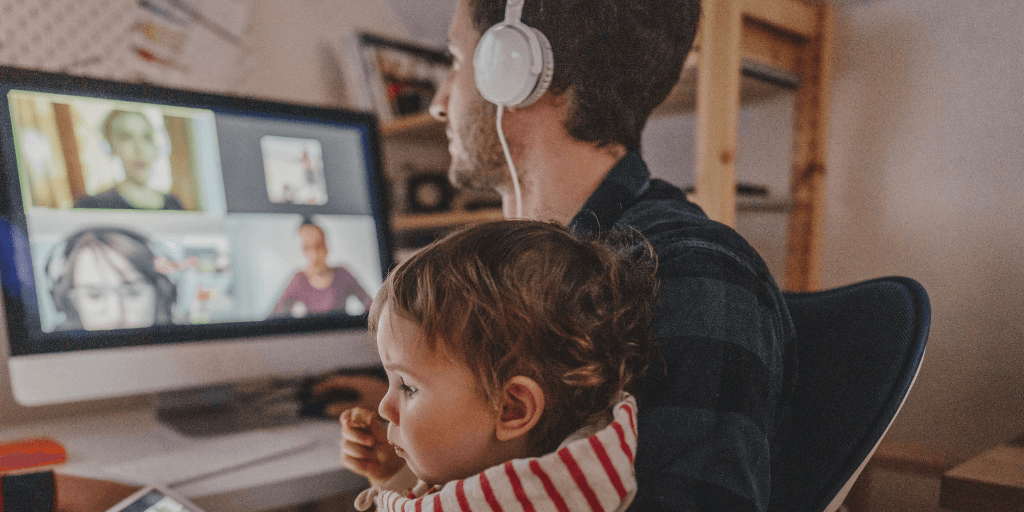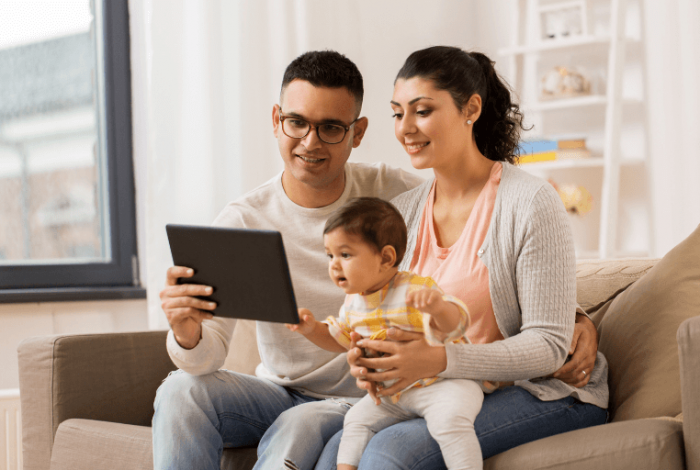
Facilitating an online parent group vs a face-to-face parent group
‘Facilitating an online parent group vs a face-to-face parent group ’ blog article was written by Chris Hutchinson, Parenting and Early Years Senior Consultant at Australian Childhood Foundation.
I have run many face-to-face parent groups. Many with a variety of different parent cohorts from different socio-economic and cultural backgrounds and many with parents of children of different ages and different levels of education, professional knowledge and skills.
Each group presents its challenges but also has its own memorable and lightbulb moments. Some parents participate and contribute to each session and some parents are observers; listening, taking it in, and only occasionally contributing to conversations or participating in activities.
I like the opportunity to build relationships with the parents in the groups through the brief personal chats we have before, during and after each session.
Almost all parents don’t want the group to finish, asking if we can add more sessions or saying it was wonderful and they want to do it all over again.
I could not envisage how this would all be possible in an online parent group. My questions were growing. How would I build those relationships? How would I read the parent’s body language? Would activities work in the online space? Would information be lost in translation?
During the COVID pandemic, I have had the opportunity to co-facilitate our Bringing Up Great Kids parenting program with an online parent group. Despite my reservations, the group went well, albeit with lower numbers than face-to-face groups, which is probably a good thing when you are starting out in the online parent group space.
Everything from the face-to-face sessions needed to be taken into account for the online groups but in a slightly different way. We always plan each session but for online groups, this had to be done many weeks before the group was to start as we needed to send the resources parents would need prior to the start. For the Bringing Up Great Kids group, all the handouts for each session, the parent journal, and a ‘Stop, Pause, Play’ remote control were prepared and posted to each parent at the start of the program.
When sending out resources we needed to think about how much time activities and discussions might take and prepare more than what we thought we might need. With face-to-face groups, we are getting to know our parent cohort as we go along, meaning we prepare and adjust our sessions to meet their particular needs. This is not possible in an online group. We can only adjust as we go but they already have all the resources even though we may choose not to use some of them.
 The online group primarily worked together as one ‘big’ group rather than using the breakout rooms for smaller groups as this group was small already. This was fine but sometimes it would be useful to allow parents to engage in discussion by themselves without the facilitators. Next time, even with a small group, I would send them all to a breakout room for private discussions, this allows the parents to get to know each other as would happen in a face-to-face group.
The online group primarily worked together as one ‘big’ group rather than using the breakout rooms for smaller groups as this group was small already. This was fine but sometimes it would be useful to allow parents to engage in discussion by themselves without the facilitators. Next time, even with a small group, I would send them all to a breakout room for private discussions, this allows the parents to get to know each other as would happen in a face-to-face group.
The parents engaged well online, participated in activities and discussions, and attended most sessions. Some parents were more engaged than others. The online space makes it harder to read an individual’s body language but also group body language. The biggest challenge I faced was the parents who regularly had their cameras off, this made it hard to know if they were engaged or even still there.
As a facilitator I had to work a bit harder at engaging the parents and ensuring they were ‘in’ the group, this meant regularly asking parents questions for feedback or their opinion, in particular the parents I couldn’t see. Parents without their cameras on also made it difficult to read body language. Reading body language is a large part of what a facilitator does. Is the parent engaged or have they zoned out? Are they part of the group or sitting on the edge of the group? Are they open or closed to new information?
While there were no personal chats like the ones that occur with parents during face-to-face sessions but the parents still did ask questions and engaged with the program. They were sad when the group finished and wanted to know when another program would be offered.
There are pros and cons for both types of parent program delivery and as facilitators we have to navigate these. So, despite my initial reservations, the online space was successful and allows for parents who may be unable to attend a face-to-face parenting program to still be able to access programs like Bringing Up Great Kids program. There is a place for both types of parent group program delivery in the future depending on the parent cohort you are working with.
I believe that practice is the key. When we do many face-to-face parent groups we become skilled in facilitating face-to-face parent groups. When we do many online parent groups we become skilled in facilitating online parent groups.
More from the Parenting and Early Years Team
“You don’t have to be perfect. We’re all going to mess up at times. We’re all going to be fearful, we’re going to be grumpy. Just repair & move on” – Tina Payne Bryson, co-author – The Power of Showing Up.
Discover more about the impact of reflective parenting has in the lives of children and young people in the blog below
